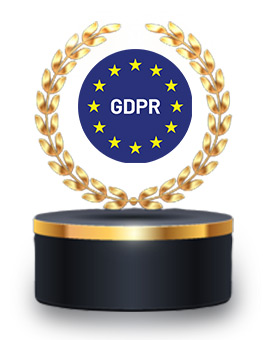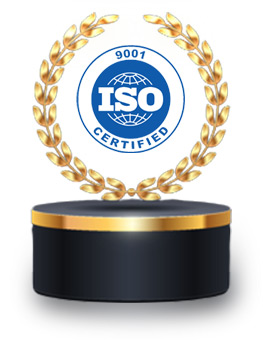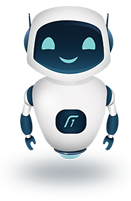AI facilitates highly personalized marketing efforts by customizing content, recommendations, and interactions based on individual customer behaviors and preferences, leading to a more engaging experience.
AI streamlines marketing processes by automating tasks such as customer segmentation, data analysis, and ad placement, which boosts operational efficiency and reduces costs.
AI leverages extensive customer data to deliver real-time insights and predictive analytics, enabling marketers to make well-informed decisions and optimize their strategies for better performance.

AI enables tailored content, product recommendations, and offers, creating personalized customer experiences that boost engagement and conversions.
AI-powered analytics tools provide real-time insights into customer behavior and market trends, allowing marketers to make informed, data-driven decisions.
AI automates tasks like customer support with chatbots and creates more effective ads, helping businesses save time, reduce costs, and get better results.
AI is changing marketing strategies by providing valuable customer insights that improve every stage of the customer journey.
Research shows that AI makes a big impact on marketing by:
AI helps create more effective campaigns by analyzing customer data. For example, it can find the best times and channels to reach your audience.
AI adjusts prices in real-time based on market demand and competitor actions, helping you stay competitive.
AI tools give deep insights into customer behavior and marketing trends, so you can anticipate changes and stay ahead.

AI automates time-consuming tasks, allowing marketers to focus on creative and strategic efforts.
AI refines customer personas and tailors content, delivering personalized experiences that increase engagement and satisfaction.
AI optimizes ad spend, targeting, and pricing, ensuring cost-effective campaigns with higher returns.
Automates repetitive tasks like data analysis and reporting.
Frees up marketers to focus on creative and strategic initiatives.
Refines customer personas for better audience segmentation.
Delivers tailored content and offers based on individual behaviors.
Optimizes ad targeting to reduce wasted spend.
Adjusts pricing and promotions in real-time for cost-effective strategies.
Analyzes vast data sets to uncover customer preferences and trends.
Provides actionable insights for more informed decision-making.
AI-driven chatbots handle inquiries 24/7, improving response time.
Reduces the need for human intervention, lowering operational costs.
Automatically adjusts strategies based on real-time performance data.
Identifies high-performing channels to focus marketing efforts.
Uses predictive analytics to forecast market shifts and customer behavior.
Helps businesses adapt quickly and stay ahead of competitors.
Assists with content generation for blogs, social media, and ads.
Ensures content consistency and relevance across platforms.
Using AI for marketing involves leveraging artificial intelligence technologies to automate, enhance, and personalize various marketing efforts. AI helps businesses analyze customer data, optimize ad targeting, create personalized content, predict trends, and improve customer service. By utilizing AI-powered tools like chatbots, predictive analytics, and dynamic pricing, marketers can make data-driven decisions, improve efficiency, and deliver more relevant experiences to customers.
AI predicts customer behavior and market trends, helping you design proactive strategies and campaigns.
Implement chatbots to provide instant, 24/7 customer support, answer FAQs, and assist with purchases, enhancing the customer experience.
AI analyzes real-time data to optimize ad placement, timing, and targeting, ensuring ads reach the right audience with the right message.
AI assists in creating content for blogs, social media, and ads, helping marketers generate relevant content faster and more efficiently.
AI adjusts prices based on demand, competition, and customer behavior, maximizing revenue and staying competitive.
AI tools personalize email campaigns by sending the right message at the right time, boosting open rates and conversions.
Optimize for AI-powered voice searches by creating content that matches voice query patterns, ensuring your business is discoverable.
Use AI to analyze customer feedback and social media comments to gauge brand sentiment, allowing you to address issues and improve brand perception.
AI identifies high-performing keywords and suggests SEO improvements to enhance your website’s search engine rankings.
Track metrics like click-through rates (CTR), time spent on site, and social media interactions to see if AI-driven personalization is improving engagement.
Measure changes in conversion rates, such as the number of leads generated or sales made, to assess how well AI tools like personalized recommendations are working.
Compare the cost of implementing AI tools with the revenue generated. A higher ROI indicates that AI is driving more efficient and profitable marketing efforts.
Monitor customer satisfaction through surveys, reviews, and Net Promoter Score (NPS) to determine if AI-powered services like chatbots are improving user experience.
Use AI analytics to measure ad performance, including cost per click (CPC), cost per acquisition (CPA), and return on ad spend (ROAS), to see how well AI is optimizing campaigns.
Track the time saved on repetitive tasks, such as data analysis and content creation, to measure how AI improves productivity and reduces manual workload.
Analyze the quality of leads generated through AI-powered tools, such as predictive analytics and segmentation, by looking at lead-to-customer conversion rates.
Measure overall sales growth and revenue increase after implementing AI to determine its direct impact on the bottom line.
Track how well AI-driven personalization efforts are performing by analyzing customer behavior changes, such as repeat purchases or increased loyalty.
Measure customer retention rates and lifetime value (LTV) to see if AI is helping to retain customers and encourage long-term engagement.
Hyper-Personalization: AI technology that tailors marketing content and offers to individual users based on their specific behaviors, preferences, and demographic data, enhancing engagement and relevance.
Predictive Analytics: AI-driven analysis of historical data to forecast future consumer behaviors and market trends, allowing marketers to make proactive, data-informed decisions.
AI-Driven Customer Support: The use of AI-powered tools like chatbots and virtual assistants to automate and streamline customer interactions, providing real-time assistance and improving overall customer service.
Automated Content Creation: AI systems designed to produce and manage marketing content across various platforms, ensuring consistency and relevance while reducing the time and effort required from human marketers.
Here’s why we stand out from the
crowd and our due recognition for the
innovation and excellence we pioneer in the industry.









Take your business to the next level. Trusted by 5000+ business globally.